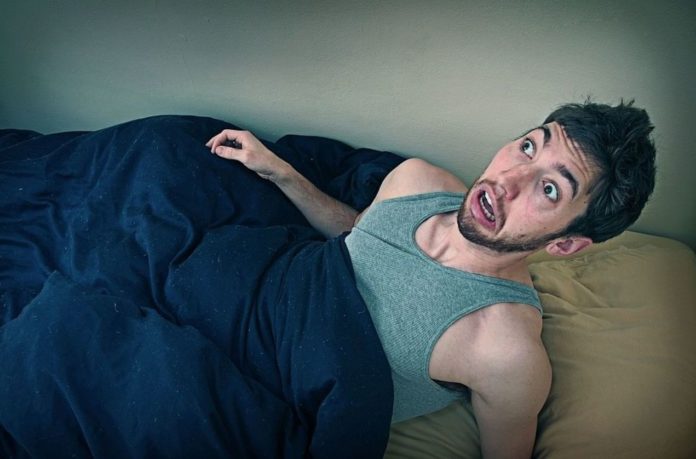We’ve all felt the sensation. You’re wrapped up nice and cozy in bed and – probably after tossing and turning – you’re finally drifting off into a nice peaceful sleep.
Then you go into a bit of a dream state in which you’re falling off a pavement, out of a window, or over a cliff, and BAM. Your whole body jerks.
Your heart’s racing a bit and you curse your mind for waking you up when you could have been snoozing by now.
- Neuroscience Breakthrough: Study Pinpoints Brain Activity That Helps Prevent Us From Getting Lost
- Brief Anger Hampers Blood Vessel Function Leading to Increased Risk of Heart Disease and Stroke – New Study
- New Blood Test Pinpoints Future Stroke Risk – Study Identifies Inflammatory Molecules as Key Biomarker
- Enceladus: A Potential Haven for Extraterrestrial Life in its Hidden Ocean Depths
- New Experiment: Dark Matter Is Not As ‘DARK’ As All We Think
This isn’t uncommon, but continuous sleep starts, also known hypnic or hypnagogic jerks, may decrease your quality of sleep if it wakes you up.
What are Hypnagogic jerks or Sleep starts?
According to Professor Gaby Badre, a sleep expert, being stressed, very tired, or having irregular sleep patterns can disrupt the natural cycle of our bodies.
Usually, our light sleep will turn to deep sleep gradually and after about an hour, REM (rapid eye movement) begins.
This is when our muscles become paralysed and when we tend to dream.
But influencing factors can mean our body is thrown into the REM cycle earlier than it expects.
We still experience vivid dreams, but our body isn’t prepared for it as our muscles aren’t yet completely relaxed.
It causes us to twitch and jerk – and can give you an almighty shock if you experience the sensation that you are falling.
Why does it happen?
According to sleep expert Dr. Nerina Ramlakhan, there are three main reasons why you might feel hypnagogic jerks in your sleep.
During the dream states and REM sleep, the person might be dreaming about running and then tries to act it out.
Dehydration can also cause twitches or painful muscle spasms.
Hypnic jerks happen as the person is falling asleep. They can be related to the release of muscle tension and stress.
How to treat hypnic jerks?
Professor Badre assures that having Sleep starts is ‘perfectly normal’, even though we worry about it.
- Neuroscience Breakthrough: Study Pinpoints Brain Activity That Helps Prevent Us From Getting Lost
- Brief Anger Hampers Blood Vessel Function Leading to Increased Risk of Heart Disease and Stroke – New Study
- New Blood Test Pinpoints Future Stroke Risk – Study Identifies Inflammatory Molecules as Key Biomarker
- Enceladus: A Potential Haven for Extraterrestrial Life in its Hidden Ocean Depths
- New Experiment: Dark Matter Is Not As ‘DARK’ As All We Think
Dr Ramlakhan said:
It’s important to relax fully before going to bed.
Try some pre-sleep yoga or gentle stretching before bedtime.
An Epsom salts bath can also help to relax the muscles and reduce stress and tension levels.
Image Credit: Getty
